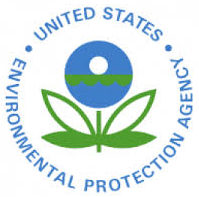
Chad Smith, NAFB News Service
Atrazine is a widely used herbicide that farmers can apply before and after planting to control broadleaf and grassy weeds. It’s used primarily on corn, sorghum, and sugarcane, and to a lesser extent on residential lawns and golf courses. The Environmental Protection Agency released the Interim Registration Review Decision for atrazine, as well as propazine and simazine. With the rule, EPA finalized mitigation measures to protect human health, mitigate potential ecological risks, and provided farmers with the valuable tools they rely on to control weeds in their crops. “Today’s decision is another example of the administration taking action to support America’s farmers, one of the strongest allies in our mission to protect public health and the environment,” said EPA Administrator Andrew Wheeler during a roundtable discussion in Missouri on Friday. “The benefits of atrazine in agriculture are high, so these new protections give our nation’s farmers more clarity and certainty concerning proper use.” EPA did a thorough review of the best available science and carefully considered scientific peer review and public comments to determine which mitigation measures are warranted for the three herbicides to properly address human health and ecological risk.
